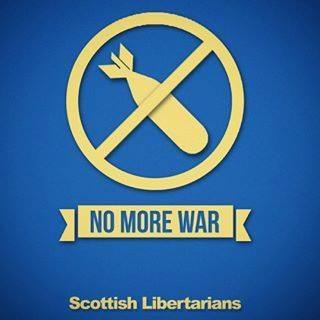Ministry of Defence has been synonymous with Ministry of War in recent decades, but the reality is that elevating the capacity to wage war abroad does not provide security at home.
It is a military fact that you don’t need parity in weapons with an aggressor to repel an invasion. Just look at the fiscal nightmare our excursions in Iraq and Afghanistan have wrought upon us by far poorer nations with far poorer military capacities than our own.
Security is the ability of a nation to defend itself so vociferously that any attack upon it would be economically disastrous for the attacker with no plausible gain. A robust defence could prove financially ruinous to an enemy – even without the demand for excessive offensive capabilities. (Bear in mind that the price of one offensive missile can equal the annual income of 10,000 people in one the world’s poorest countries.) We could save precious resources by diverting funds from our offensive capacities while ensuring that Britain had the latest surveillance systems, antiaircraft weapons, and a highly efficient system of sabotage and non-cooperation that would make it impossible for any foreign power to control this country. If neither our forces (nor those of The Soviet Union) could prevail in Afghanistan because of the resistance movements there, what chance would any country have of occupying Scotland?
An invader would be faced with the very latest in defence technology and a civilian population that could be mobilised quickly to make life hell should they actually land. Under Libertarianism, Scotland would be a country where most government decisions were made in local regions, and running the show from a central point would be near impossible. Highly organised systems of sabotage could be ready to take out all the key roads, bridges, railways, runways, and communications if necessary. Pre-arranged plans of resistance by highly trained professionals in every region would mean constant alert, plus the Scottish people have a proud history of non-compliance with occupiers. What’s more attacking our neutral country would also result in considerable political, diplomatic, and economic costs to our assailants on the international stage.
NATO was originally created as an organisation run by America for America to ensure that any war between them and The Soviet Union would be fought on European soil. It doesn’t serve our interests and we don’t need to waste money being a part of it any more. The SLP would like to see our phased withdrawal from that outmoded alliance, but with the continuation of diplomatic relations with the other nations that are a part of it on peaceful grounds – rather than warlike ones. Establishing free trade with all existing nations would also form an important deterrent, because – as the great Classic Liberal economist Frederic Bastiat put it, “When Goods Don’t Cross Borders, Armies Will.” When each nation benefits from trade, then what nation would stand to gain from biting the hand that feeds?
It’s time to start shaking hands instead of fists. Arming ourselves for offensive battles in the Middle East has not defended us against terrorism. It has diverted resources away from looking after our security interests and invited reprisals. While it may be woefully naïve to hold western foreign policy as the only reason why Islamic Fundamentalists might seek to attack us, it cannot be denied that our history of foreign meddling; from deposing Mohammed Mossadeq (the democratically elected leader of Iran) from power in 1953, to training the Mujahedeen in Afghanistan who later became Al Qaeda, has blown up in our faces. Our alliance with the Wahabi regime in Saudi Arabia who have used their tremendous oil resources to preach the most illiberal forms of radical Islam throughout the region has also sadly been a contributing factor. In 1990 there was no global Islamic threat or jihadi terrorist menace. The Shiite/Sunni divide had co-existed since 671AD, but its episodic eruptions into battles and wars over the centuries had rarely extended beyond the region, and certainly had no reason to fester into open conflict in 1990.
With ease, we can create a country which is eminently defensible without violating our integrity and pilfering the tax payer for offensive capabilities we hope never to use. The Military-Industrial Complex has been the only beneficiary – and we are an anti-corporate welfare party. The savings that would be made from the public purse would be adequate to create massive economic growth and set an example on the world stage of how prosperity comes from free trade rather than military poise.

Is a writer and Life Coach from Glasgow now living in Edinburgh. He is on The Scottish Libertarian Party’s constitutional committee and will be running in the forthcoming Scottish Elections in Glasgow.







I like this. I have often felt like the common set up of government monopolies in military and defense leave the population very much at risk if there is an invasion. I am frustrated that so many people think the government will even be able to come close to defending the common person if there is invasion. Even if they insist (by the power they currently have) in maintaining the military complex, the least they could do is let us be ready to thoroughly defend ourselves in our own territory and homes.
Excellent piece Anthony, having grown up in Switzerland, I have experienced first hand just how effective and realistic your proposals are. Not only is this cheaper, more effective but also more humane and intelligent. After all it is called Ministry of ‘Defence’, not Ministry of ‘Attack’.
Guy Montrose – Former Chair Libertarian Party UK – Founder Vice Chair, International Alliance of Libertarian Parties